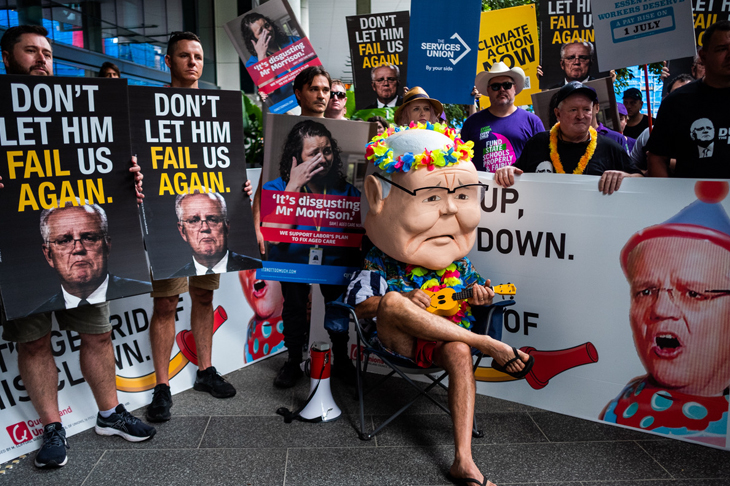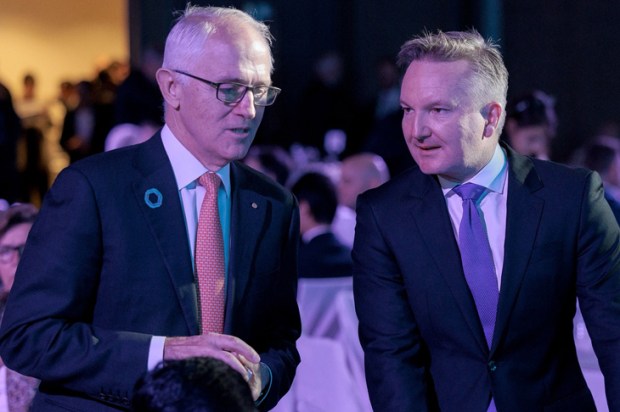In the aftermath of the May election, no doubt accounts of the death of the Liberal Party have been exaggerated but it must be said that that the patient is in very poor health.
The Liberals are now out of office in seven of nine polities in Australia and in all of those seven governments Labor has a comfortable or, in some cases, substantial parliamentary majority. The two exceptions to Labor dominance are New South Wales, where the Liberals have lost their majority on the floor of the Legislative Assembly and face an election in nine months’ time, and Tasmania where they have a majority of one seat in the Lower House.
Even if the seven elections that produced these Labor governments had been close – which they were not – this would not have helped the Liberals because they need to win a parliamentary majority in any lower house in their own right. If they do not, any Greens elected and almost any independent will support Labor forming a minority government. This is what happened at the federal level following the election in 2010 when neither of the major parties achieved a majority in the House of Representatives but the Gillard government took office with the support of one Green member and three independents.
It goes without saying that the Liberals have no realistic prospect of obtaining a majority at the federal level in the Senate or in any of the five state upper houses – Queensland and the Territories do not have an upper house. The same can usually be said about Labor, although, after its landslide victory at the 2021 WA election, Labor does remarkably have a majority in the Western Australian Legislative Council. But, despite the problem that both major parties generally have with the numbers in upper houses, in the Senate and generally at the state level, Labor is normally able to rely on the Greens and most independents in these chambers to support the bulk of their legislative proposals.
Demography is moving against the Liberals in a number of electoral groups. This is particularly true among young people who are often attracted to the Greens. They have no fear of the Greens’ irrational economic policies because they have never experienced anything in their lives other than continuing periods of stable economic growth and assume that this cannot ever be disrupted. Moreover, they have grown up in a society where many members of the community make no connection between a government’s revenue and its expenditure so that it is simply assumed that any problem that arises in the community can be addressed by increased government spending without any corresponding increase in taxation.
Another group where the Liberal vote has declined significantly is amongst university graduates. This is perhaps not surprising considering the implacable hostility of almost all university staff to the Liberals and the political correctness that is now an article of faith in all tertiary institutions. There are presumably still some young people who attend university and would like these institutions to be, as they once were to some extent, places for the exchange of ideas with scope for disagreement on political, social and economic questions. But they would know that any violations of the politically correct code would be highly detrimental to their academic progress and possibly their future employment.
On the financial side, the Liberals were outspent by Labor in the May federal election campaign and also by the Teal independents in those seats captured by the Teals. Labor can rely on the union movement for large-scale donations but the Liberals no longer receive the same kind of support from the business community. One reason is that the boards of many large corporations are so concerned to project a politically correct image that they try to avoid financial commitments to either of the major parties but particularly to the Liberals. In addition, they fear retribution from the union movement and from a Labor government if they were to actively support the Liberals, whereas they know that there can be no similar measures under a Liberal government. It is no accident that almost nothing was heard from bodies representing business interests in the course of the May campaign. Even between elections the unions maintain, as is their function, a full-blooded campaign in support of Labor while business groups keep a low profile, seemingly reluctant to speak out no matter what burdens are imposed on their members.
To all this can be added the fact that the Liberals have comprehensively lost the culture wars. They are the subject of mockery in schools and universities, by the ABC and at artistic and literary festivals. And, as already noted, even in many corporate boardrooms their policies in such areas as climate change, border protection, freedom of speech and religious rights are the subject of deep hostility. These views are not necessarily reflected in the general community but the relentless denigration by these opinion-making groups in Australian society has inevitably taken some toll in the electorate. In the 1950s and the 1960s the Liberals were the respectable party of the establishment and Labor the slightly disreputable alternative. In those days most private and public institutions were broadly supportive of the Liberals and viewed Labor with an element of disdain. Now, however, it is the Liberals who are unfashionable while Labor and the Greens have their images constantly burnished by all the public institutions that they control and by many private institutions who are sympathetic to them.
None of this means that the Liberals cannot win a federal or a state election in the immediate future. The two-party system is certainly showing signs of strain following the May federal election but, unless it collapses completely, the seven Labor governments currently in office will, except perhaps in the ACT, eventually run out of steam and succumb to the electorate’s desire for a change. Even so, the Liberals have a hard – and perhaps long – road ahead over the coming years in almost all parts of the country.
Got something to add? Join the discussion and comment below.
Get 10 issues for just $10
Subscribe to The Spectator Australia today for the next 10 magazine issues, plus full online access, for just $10.
You might disagree with half of it, but you’ll enjoy reading all of it. Try your first month for free, then just $2 a week for the remainder of your first year.














Comments
Don't miss out
Join the conversation with other Spectator Australia readers. Subscribe to leave a comment.
SUBSCRIBEAlready a subscriber? Log in